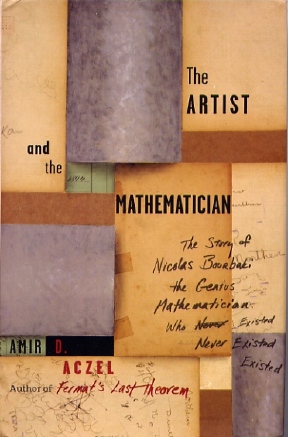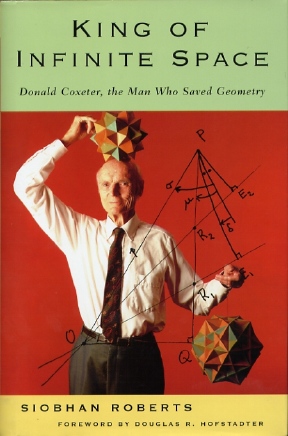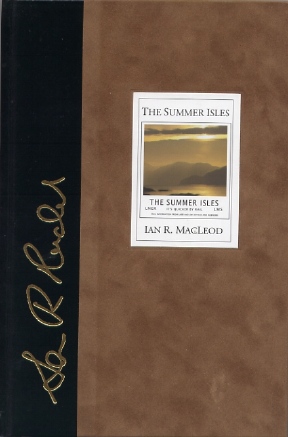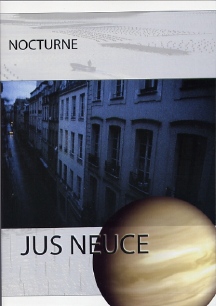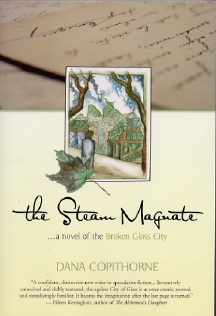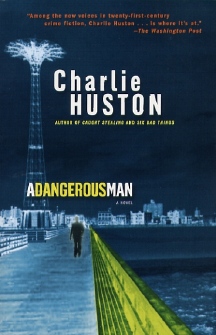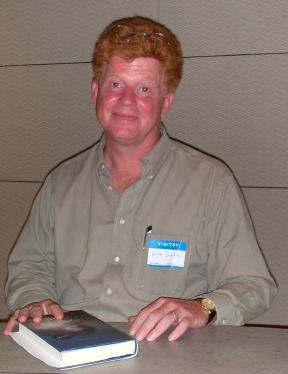|
|
|
This Just In...News from the Agony Column
|
09-08-06: Math Fashions |
||||||
| Amir
D. Aczel's 'The Artist and the Mathematician' and 'Siobhan Roberts'
'King of Infinite Space' It all adds up; in a world where everything we do is mediated by computers, it's only natural that our interest would eventually turn to the mathematicians who helped make it possible. Two new biographies bring us a bit closer to the men behind math as we know it, and in doing so, they open up the human dimensions that underlie our ability to attain perfection. Math itself may be pristine, but it is the creation of humans who not so pristine. Even thoughts too complex for the average human to understand must originate in the minds of humans; and those are some damn interesting minds for us ordinary readers to contemplate. So we now come to the bookstore to find two new math bios, 'The Artist and the Mathematician' by Amir D. Aczel (Thunder's Mouth Press ; August 28, 2006 ; $23.95) and 'King of Infinite Space' (Walker & Company ; September 5, 2006 ; $27.95). You can put away your calculator and set aside your fear of math. These are books about the men who make math, why they make it and the process of creating what goes in the textbooks. The story behind math and math textbooks seems fascinating to me, and these two books offer rather different looks at the under-examined profession that is at the axis of our lives.
Here's the one catch about Nicolas Bourbaki. He didn't exist. It's one thing to hoax people about, say, a flying saucer sighting. Or the Loch Ness monster. It's quite another to create a false persona to publish the seminal work upon which the math taught in the latter half of the twentieth century is based. If you ever thought that everything you learned in math class was either lies or based on lies, then, as it happens you were right. That the science we hold so dear, so close to reality and perfection was the creation of a man who did not exist – it boggles the mind. Aczel's book does this and more. Bourbaki was the deliberate creation of a group of French mathematicians, Aczel goes behind the creation of Nicolas Bourbaki, answering a question that has now become obvious: "What were they thinking!?" 'The Artist and the Mathematician' is a short book, just barely over two hundred pages by an acclaimed author that exposes what to me is one of the greatest frauds ever perpetrated. You can think of it as hard math meets true crime and you won’t be far from wrong. But Aczel concretely demonstrates what Charles Fort's assertion that, "I conceive of nothing, in religion, science, or philosophy, that is more than the proper thing to wear, for a while." Science is fashion and math is fashion, subject to and influenced by the trends of the day, as well as influencing said trends. Aczel gets to the heart of the trends behind the new math, the perceived need for new math. You though math was lies? You were right.
Roberts does a great job of keeping our eyes on the man as well as his math. Roberts uses the cut-and-paste literary fashions of this day, a combination of journal excerpts, interviews, sidebars on other figures of importance like Ludwig Wittgenstein and the kind of etchings and drawings I used to love in the "Old Math" textbooks to tell the story of a man's life in math. From algebra to zeolites, 'King of Infinite Space' looks at the kind of math that we always thought of as hip, as cool, and tells us why we thought what we thought. Between them, these two books offer us a look at the monolith we think of as math. They literally take it apart and put it back together again, transform the universal into the human. What these books demonstrate is that when we observe the universal, we transform it into the human, into the fashions of the day. Math is the proper thing to wear, in our science-obsessed culture. Let us try it on, and see how we like it. |
|
09-07-06: Margaret Atwood Explores Her Own 'Moral Disorder' |
|||
SF&F's
Favorite Troublemaker Back At It
Well think again, boys. Keeping the real-world setting, Atwood has usurped the old SF&F favorite, the set of connected stories. In fact, you set this novel the right way, and it starts to look rather like a mosaic novel of the sort favored by Jeff VanderMeer and recently-written-about Zoran Zivkovic. But let's leave that aside, because, frankly, any relation to SF&F is rather spurious. I just like to wind folks up. Still, having gone from Zivkovic to Atwood, I couldn’t help but wonder. 'Moral Disorder' begins in the middle, in the present, as Nell and Tig find themselves in a position a lot of folks I know find themselves in; that special moment between those times when your kids have left the house and the time times when they'll either need to move back into take care of you or move you out to have someone else take care of you. Not a good moment, and less so in our perilous world that seems to be headed to hell in jet-powered handbasket. In fact, it now occurs to me where we're seeing the first flying car and why we don’t recognize it. It's that handbasket, headed to hell. It just seems fast, but really, it['s the flying car. Happy happy! If you are indeed happy, you’re probably better off than Atwood's characters. She's structured the mosaic novel / connected short story collection as if it were a photo album, so we get nice, discrete moments of time, most of them in the past, safe from any science fiction. (See boys, you can rest now, right? It's just a mosaic novel, done by one of our finest authors. No threat whatsoever.) Atwood pops all over the place in time and in narrative styles, giving us omniscient narratives and first-person narratives. She keeps things simple in each discrete episode and lets the complexities arise as the reader puts together the big picture. We are told that this is not a self-portrait, but also that this is the closest thing to such a concept that we've received from this writer since her novel 'Cat's Eye'. It's time to stop the Fear of Atwood, to get past it. There is no trickery going on here. This is a really just a picture book. Flip through pictures of your papa, your mama, your sis and your brother. Each photo brings back the memory and the moment and out of moments are a life woven. And for all that we might want to escape life, and think that we read to escape life, in reality, we don’t do that at all. We read to experience life's rich pageant, as Inspector Clouseau might say. This is a particularly clear series of pictures of a particularly rich life, from a writer who has great skill. Flip through the pictures, put together the life. The big picture. |
|
09-06-06: Say Yes to Aio Publishing |
|||||||||||||
All-In-One,
Asynchronus I/O for the Speculative Fiction Reader
It's always nice to discover a new independent publisher. Recently, I got an email from the folks over at Aio Publishing, which actually describes itself as "a small private company devoted entirely to a literary breed of speculative fiction. Aio (pronounced IO, or eye-oh) is Latin for yes." They asked if I might be interested in their work, as I definitely have an intrest in one of their published titles, Ian R. Mcleod's 'The Summer Isles'. (Macleod is a must buy, folks. Remember that!) They sent me their books while I was at WorldCon, and when I returned, it was to find a box of some of the nicest books I've seen in a quite a while. I'll definitely say, "Yes!" to this group, which has a fine selection, and should go on your short list of places to look for exciting new titles.
But we don’t just buy books for the outside, do we? Partially, of course, we all love a beautifully designed book, and 'The Summer Isles' is certainly that. But most importantly, it's a well-selected title. Tiffany Jonas, the publisher has clearly got her head in the same place as do I and my readers. 'The Summer Isles' is Macleod's tale in which England, having lost WWI, encounters the economic woes that beset Germany upon losing WWI, and thus is transformed into the fascist state that Germany became. An expansion of the story with the same title that won the Sidewise Alternate History Award in 1999, the novel won the Sidewise Award this year, which is rather more than interesting. Count on Macleod to provide dreamily engaging prose wrapped around a diamond hard conceptual center. Given that this is a new novel by Ian R. Macleod, I mean – the halls should be ringing with joy. That it is a new novel by Macleod in some kind of to-die-for package? I just hope for the sake of my readers they’re not sold out. They don’t appear to be. Let's take care of that. But Aio has a great vision behind all this, so it's no surprise that they would have more in store. Fans of Serbian fantasist Zoran Zivkovic (sorry, can't hack the accents) should be honored to know that Aio has forthcoming his new mosaic novel, 'Seven Touches of Music' (Aio Publishing ; Spetember 30, 2006 ; $23.95). Amazingly, they've managed to create a package every bit as striking as the writer's work, no small feat when it comes to a writer as distinguished and talented as Zivkovic. 'Seven Touches of Music' brings together seven different pieces of a very peculiar and powerful puzzle, with the connecting theme of music at the heart of the work. Think of Borges and Calvino, or Jeff Vandermeer. Then erase your brain, or really, no need. Zivkovic will do that for you. He has that gift of effortless prose that envelops you and is startlingly easy to read even as it drives daggers into your perception of the world as well as your heart. I'll let readers experience this one for themselves, because you know if you like this guy. But damn, how could it matter much when you see this gorgeous package? How could any package this beautiful contain anything less than beautiful? I don’t know and I don’t care. The black-on-black cover, the black edged pages, the tight binding, stop me now! Again, at $23.95, it seems like a steal, a fantastic deal for an independent publisher. I hope there are enough to go around, though I can't see how that might be the case. Signed, sealed, it is to die for. Trust me, both this and the Macleod novel are white glove experiences. They really do strike one as works of art.
Forthcoming from Aio is Dana Copithorne's 'The Steam Magnate' (Aio Publishing ; September 30, 2006 ; $16.00), an urban fantasy that bills itself as "...a novel of the Broken Glass City." Since I suspect that most of my readers are well on their way to Aio's website by now, I'll take only the time to say that 'The Steam Magnate' follows three characters in the "Broken Glass City" through some, well, tough times. Tough times in a sort-of Dickensian, surreal landscape, informed, so the author tells us by Iris Murdoch. Not the usual choice for the speculative fiction author, but the kind of choice that I personally would like to see become much more common. And here's where you can see that careful editorial hand, the reason that you can just put Aio Publishing on your auto-buy list. I'd suggest that as of this article, Aio Publishing has overall a sort of surreal, magic-realism-meets-science-fiction feel. Super-high quality prose, on the poetic side. Gorgeous design. Are these perfect books? They're certainly books of a kind, and if you think it's a kind you might like, well, chances are you're so, so right. This is why we love books, especially real books. There's a sort of nexus between the design, the editorial selection, the actual writing, the whole package, more than the sum of the parts. And hell, at these prices, let me say this again: such a deal! I almost feel bad that I let this hang out for the interval since I returned, but I admit it. I wanted to luxuriate. I wanted to sort of hang out with them, you know. Carry the stack with me (very carefully!) as I move from reading place to reading place. Get to know them, so I could do them justice. I think that's possible, to do books like this justice. Here they are. Damn close to frame-worthy–after you read them, of course. |
|
09-05-06: Charlie Huston is 'A Dangerous Man' |
|||
Effortless
Reading for Labor Day
Now that you're worked up about the state of labor, why not get worked up with the latest Charlie Huston novel, 'A Dangerous Man' (Ballantine Books ; September 19, 2006 ; $13.95)? Huston is a true star of the genre, and he writes one hell of a working-man's meat-and-potatoes novel. Let's put it bluntly. He kicks ass, makes you laugh out loud by using the word "Fuck" often and imaginatively, and he often injures the innocent in an amusing fashion, followed up by a real ass-kicking for the Guilty. Moreover, Huston is canny enough to write the Guilty so that they seem to resemble whomsoever the reader feels is best identified as the Guilty. Yes, it's an imperfect word, and it requires a rigorous mind to know how to use the word "Fuck" to make it a better world. In this, the third novel featuring Henry Thompson, our favorite reluctant hit man finds himself guarding a shadow of his former self, sort-of; a baseball player with a bad gambling problem and a bright future that, given Thompson's proximity, is likely to grow darker. But said player gets picked up by the Mets, which brings Henry back to New York. Good news for the player, bad for Henry. But it's excellent news for us "Fuck"-loving aficionados of bad language, bad behavior and bad decisions. I mean, if your life is fucked over (or even, say, less than perfect) what could be better than reading the adventures of a potty-mouthed bad guy would-be good guy if he weren't such a shit and so often in the shit? Turn to any page, and you'll find either the word "Fuck", or a baseball reference, or maybe a hot babe. Or all three. It's not high-falutin', but Henry (and Charlie, for that matter) may be in the process of re-defining high falutin' or making the alternative to high-falutin' so entertaining that saying, "Well, fuck that shit," becomes a very workable alterative to high-falutin'. Moreover, we have the promise of another Joe Pitt Casebook, 'No Dominion', come New Years. In the interim, get out your baseball bat, but don't plan on hitting any balls. At least, not any baseballs. |
|
09-04-06: Pulling the Wings From Disney's Fairies |
|||
A 2006 Interview With Keith Donohue
And here's an interview for you as well, with the author, Keith Donohue. It opens and closes with readings from the novel, and in-between, Keith and I talked about how he came to, as he put it, "pull the wings from the Disney fairies." This novel is tough, gritty, and has a wonderful elegiac vision of America during a time of change. Donohue is a careful, fascinating speaker. From Yeats to Disney then, in MP3 or RealAudio. Happy Labor Day, and I hope that others out there find the opportunity to labor at tasks they love as much I love writing about books. So long as there are books out there worth reading, I intend to find them, read them, enjoy them, and then to write about them so that other readers can figure out what books are right for them. I hope that I'm helping a few folks glom on to some good reading. Now, the sun is just starting to come out and I'm going to get to it, as I'm already reading another quite wonderful book. That's not work, it's a labor of love. |
